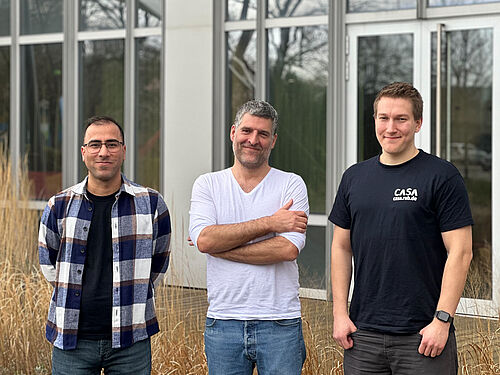The paper "Cryptanalysis of HALFLOOP Block Ciphers: Destroying HALFLOOP-24" by the HGI/CASA researchers Lukas Stennes, Shahram Rasoolzadeh, and Prof. Gregor Leander, CASA PI and Professor for Symmetric Cryptography at the Horst-Görtz-Institute for IT Security, Faculty of Computer Science of the Ruhr-University Bochum, is being honored at this year's "Fast Software Encryption Conference" (FSE), taking place from March 25th to 29th in Leuven, Belgium.
The research reveals the significant security risks inherent in the HALFLOOP-24 encryption algorithm, commonly used for encrypting Automatic Link Establishment (ALE) messages in high-frequency radio devices. This technology is frequently employed by military, governmental agencies, and industries requiring robust communication over long distances.
From 541 Years to Just Two Hours
In a prior publication titled "Breaking HALFLOOP-24," the researchers highlighted the vulnerability of the algorithm based on Tweakable-Block Ciphers. However, in their current paper, they demonstrated the attack scenario within a more realistic framework: Using only a small number of differential pairs, they were able to identify the correct key and reduce the timeframe for collecting relevant data sets from 541 years to just two hours.
In addition to their findings regarding HALFLOOP-24, the team also investigated attacks on larger versions of the algorithm, namely HALFLOOP-48 and HALFLOOP-96. Nevertheless, the authors note that these attacks are more theoretical in nature.
The original publication of the paper can be accessed at the following -> link.
General note: In case of using gender-assigning attributes we include all those who consider themselves in this gender regardless of their own biological sex.


